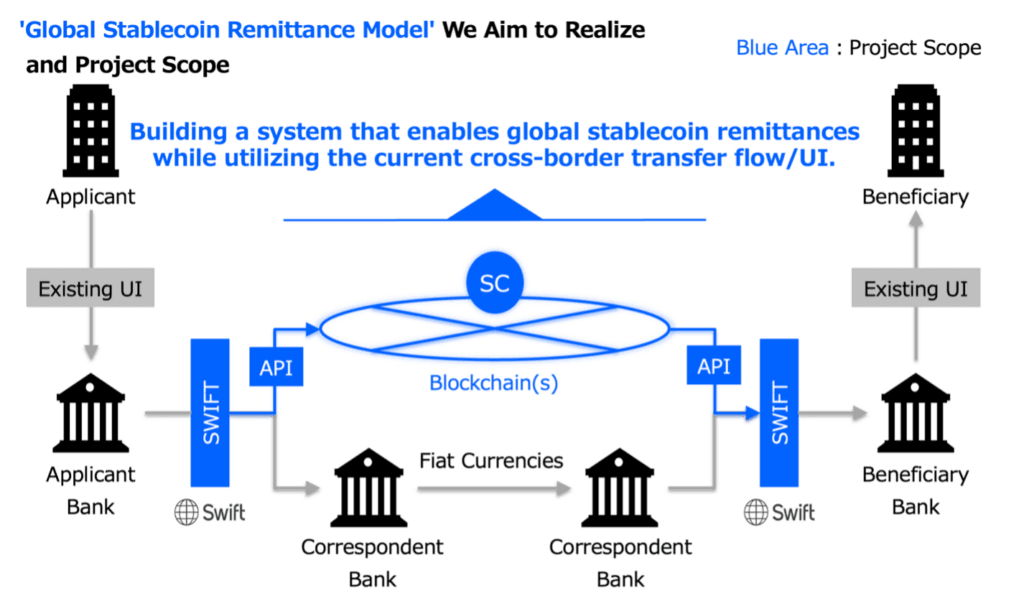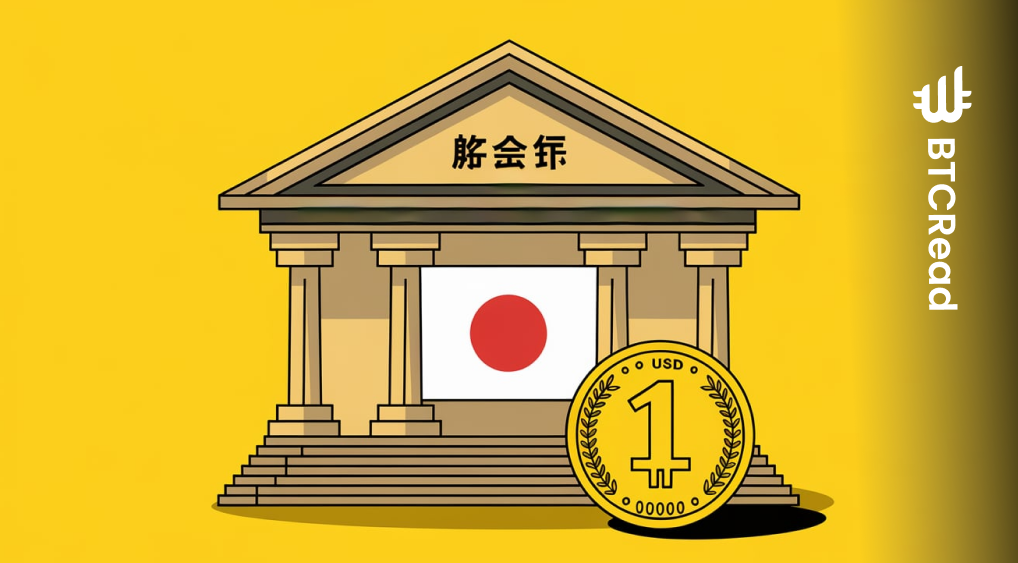Three of Japan’s largest banks are entering the stablecoin pool to facilitate international business settlements. Mitsubishi UFJ Bank, Sumitomo Mitsui Banking Corporation, and Mizuho Bank plan to trial a stablecoin platform called Project Pax.
According to the press release, the initiative, spearheaded by blockchain firms Progmat and Datachain, seeks to revolutionize the cross-border transfer market worth $182 trillion. Project Pax aims to leverage stablecoins as a means for low-cost, round-the-clock transactions to resolve the G20’s major concerns regarding international transfers, such as costs, speed, and transparency.

Instead of introducing a new solution, the project will utilize Swift’s current API framework. Thus, banks can direct Progmat to settle on the blockchain while dealing with unresolved issues like AML/CFT compliance and operational problems. The financial sector benefits from this by not having to do exchanges based on cryptocurrencies and reducing the cost of financing.

The pilot test is about to start with a prototype, and the ambitious goal of commercializing the platform by 2025 is on the horizon. As the project gains momentum, more countries and financial institutions are joining the bandwagon.
Stablecoin market is poised for massive growth by 2028
Stablecoins have enormous potential while only accounting for less than 0.5% of the entire fiat currency market cap. The $4.5 billion net profit in Q1 2024 of Tether Limited is a clear indication of the sector’s growth trajectory. A report released by the experts estimates that the stablecoin market will rise to $2.8 trillion by 2028.
Meanwhile, Japan’s proactive stance on stablecoin regulation in the UK makes it the most attractive candidate for leading the way in the financial revolution. It is expected that stablecoin issuance and real-world use will start in Japan by the end of 2024, Project Pax could be the turning point for this propelling stablecoins into mainstream finance.
A good 65% of companies indicate this leads to speedy, less costly international transactions minus the tech troubles. Conversely, banks are able to render top-notch services to their corporate clients without shelling out a fortune for advancing their system setup.
Related | ZKB introduces Bitcoin and Ether trading in Switzerland







